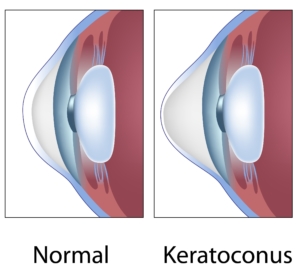BostonSight, 464 Hillside Avenue, Suite 205, Needham, MA 02494
Phone: 888-SCLERAL (888-725-3725)

Design and development by RainCastle Communications.

Dani is a college student at a midwestern university. She is a softball player and is committed to playing ball at university via a scholarship. She’s noticed that she is having significant trouble playing ball because of vision issues that are getting worse.
Symptoms: Blurry vision. Increasingly difficult to see clearly, especially when the ball is coming toward her.
“I’m a ballplayer and a student, but if I’m being honest, softball is my life. I absolutely love it, and my scholarship at school depends on it. I was having a really hard time seeing the ball coming toward me and my RBI record was pretty bad. Forget about my position at first base. I missed so many balls in the pre-season that coach pulled me and asked me to get checked out.”
“My vision was getting blurrier and blurrier, and I was starting to get worried about being able to play. I kept rubbing my eyes thinking I needed to clear something out. I went to a local optometrist for a check-up, because my coach was worried, and the optometrist diagnosed me with keratoconus that day.
Keratoconus made my cornea bulge slightly in my right eye, causing distortion and blurriness.
He told me to stop rubbing my eyes, which could be making it worse. We don’t really know what caused my keratoconus, because it doesn’t run in my family. I like to learn and so I dug into everything I could find about keratoconus. The National Keratoconus Foundation was a great resource. I learned that keratoconus can be caused by a number of things, including excessive eye rubbing, allergies, and genetics. There are several treatment options depending on the severity of the condition. My keratoconus is not advanced to the point where I’d need a corneal transplant, thankfully, so my optometrist recommended BostonSight SCLERAL. Scleral lenses gave me my vision back immediately. Sclerals require a learning process to apply and remove, but once you get it, you get it. It’s just another step in my morning routine.”
Now I’m back on the field again, doing what I love.
Keratoconus affects 1 in 2,000 people in the U.S., with recent data indicating that the incidence may be much higher. It is a leading cause of corneal transplantation and a life-long disease that can cause blindness if left untreated. However, most cases of keratoconus can be successfully managed.
For a wide range of keratoconus cases, scleral contact lenses are the treatment of choice.

Keratoconus causes progressive thinning or distortion of the cornea, including a bulging cornea. Symptoms can include:
BostonSight SCLERAL lenses provide a new, smooth corneal shape over your damaged cornea, improving vision and promoting long-term ocular health.